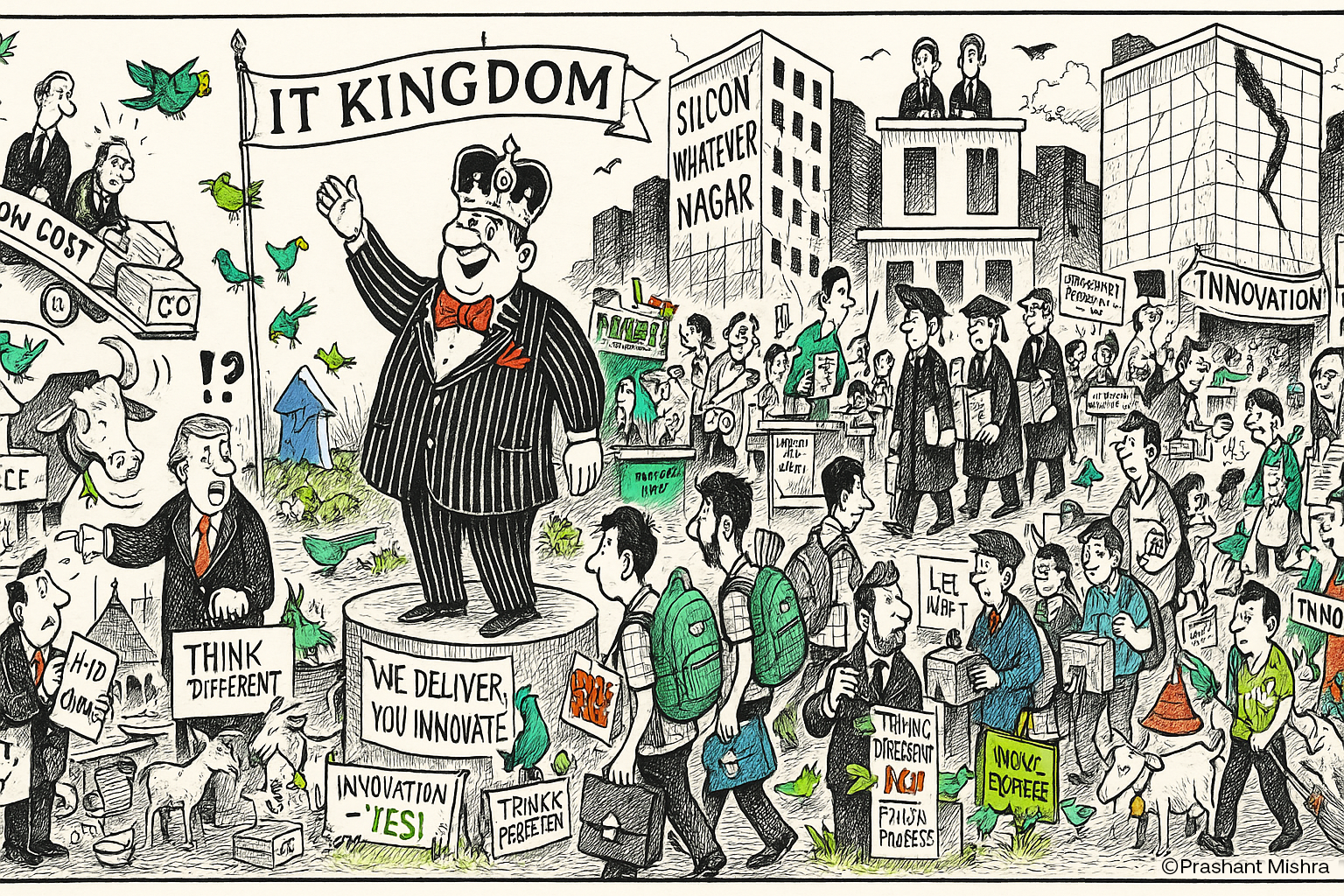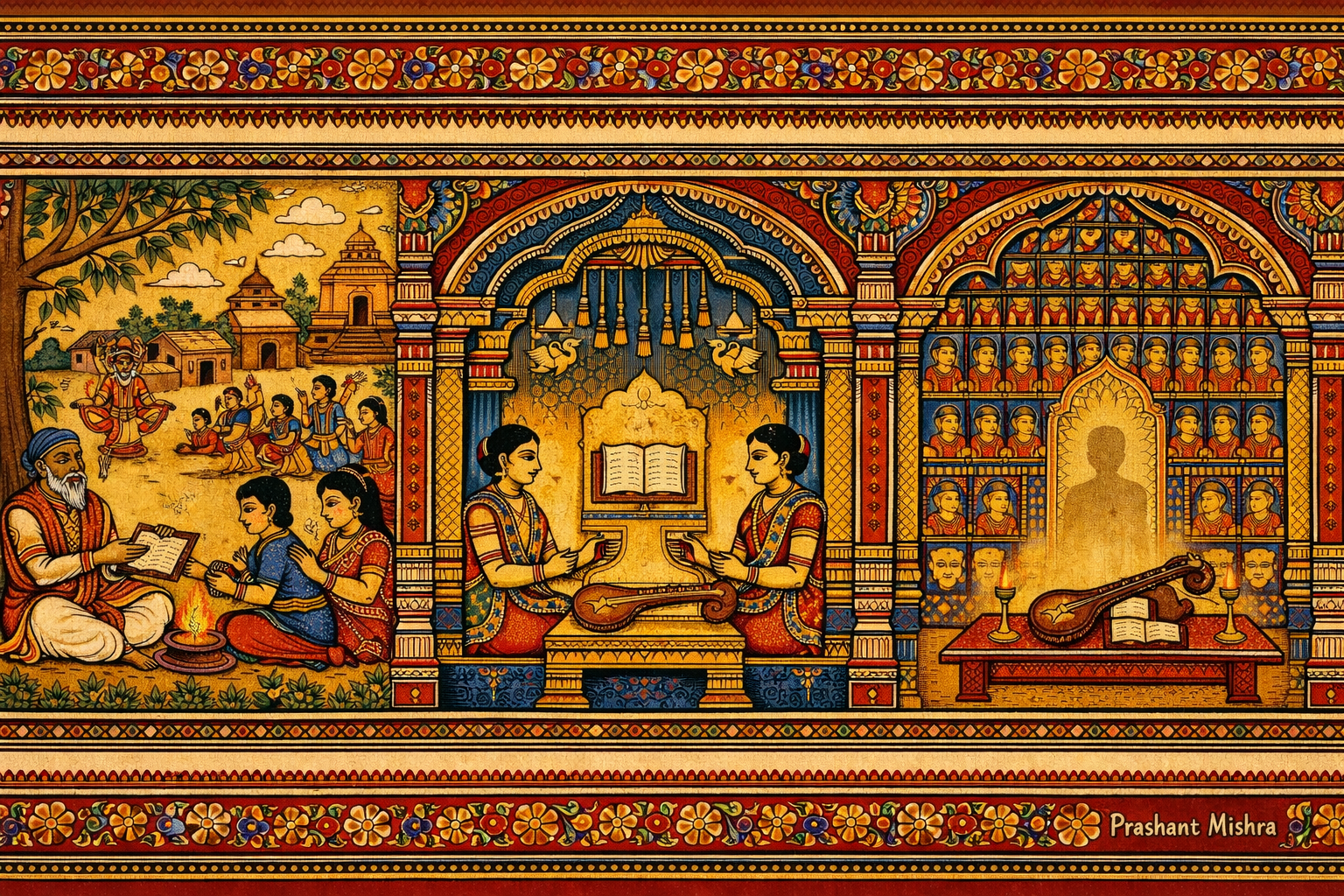
Essays on Life - Part 2: On Role Models (wise, witty, and irreverent grown-up in my life)
The only adjective we should ever be bothered about and should work to incorporate in every aspect of our lives, and which we almost always fail to do, is the adjective "irreverent.".
As I grow old, tired, and bitter, I have begun to realize that it is the only attribute that I should have invested in. Moments of deeply focused irreverence are the foundation of every success in life. Yes, love, sex, patriotism, freedom, etc. are all causes for the relentless forward movement of mankind and its eventual demise, but if, like an onion, one peels away the layers, the kernel of every achievement is the idea of irreverence.
It was irreverence to the idea of war that made Arjun hesitate, which led to the Bhagwat Gita. Even during that sermon, the brief moment of irreverence when Arjun said to Krishna that he didn't believe who Krishna was was the trigger for the Lord to present his Virat Swaroop.
We avoid or accept many things in life because we respect them, respect the people or ideas they represent, or respect the feelings of others whom we love. In fact, a detached assessment of love itself will invariably lead to an idea of respect: we choose our objects of affection based on preconceived concepts that we hold in reverence. This respect becomes the foundation of rigidity and conformity, which in turn stymies our progress and eventually leads to unhappiness. Therefore, we must constantly question and evaluate our reverence.
I saw the light once, and I was convinced of its brilliance, but I decided to walk away because it was too damn difficult to continue. I chose the path of so-called least resistance and cultivated respect. No points for guessing where it eventually led me. Not every successful person I have met is one who has bucked the trend, but almost “all” the happy people I know are those who are irreverent. This is what I believe to be the biggest conundrum in life.
One must always be cautious and circumspect when choosing role models. I think a lot of the angst and anxiety we encounter in our daily existence can be traced back to the role models and ideals we choose to believe in. Our societal pedagogy puts enormous emphasis on placing people on pedestals, but we don't teach that gods too can fail. Even when all ancient literature is filled with stories of gods failing, screwing up, etc., we conveniently skip that part.
For example, one can be glad that one is considered a role model, but what if the virtue in one, which was the centerpiece of the initial attraction, has already left the building long ago? Therefore, if someone continues to influence you, it's possible that they are unintentionally guiding you towards disappointment and bitterness.
In my opinion, role models should be like condoms: they keep you safe, they help you perform, they give you happiness, they lift you up even if briefly (depending on the brand you choose), but most importantly, they can be used only once.
If one's role model remains the same for a long, then one is incarcerated in constructs of the past, and this is happening due to the respect that one has developed, and that is going to reflect in all other relationships in one's life.
Therefore, having reverence and role models is like having a colon, both of which must be constantly evaluated.


